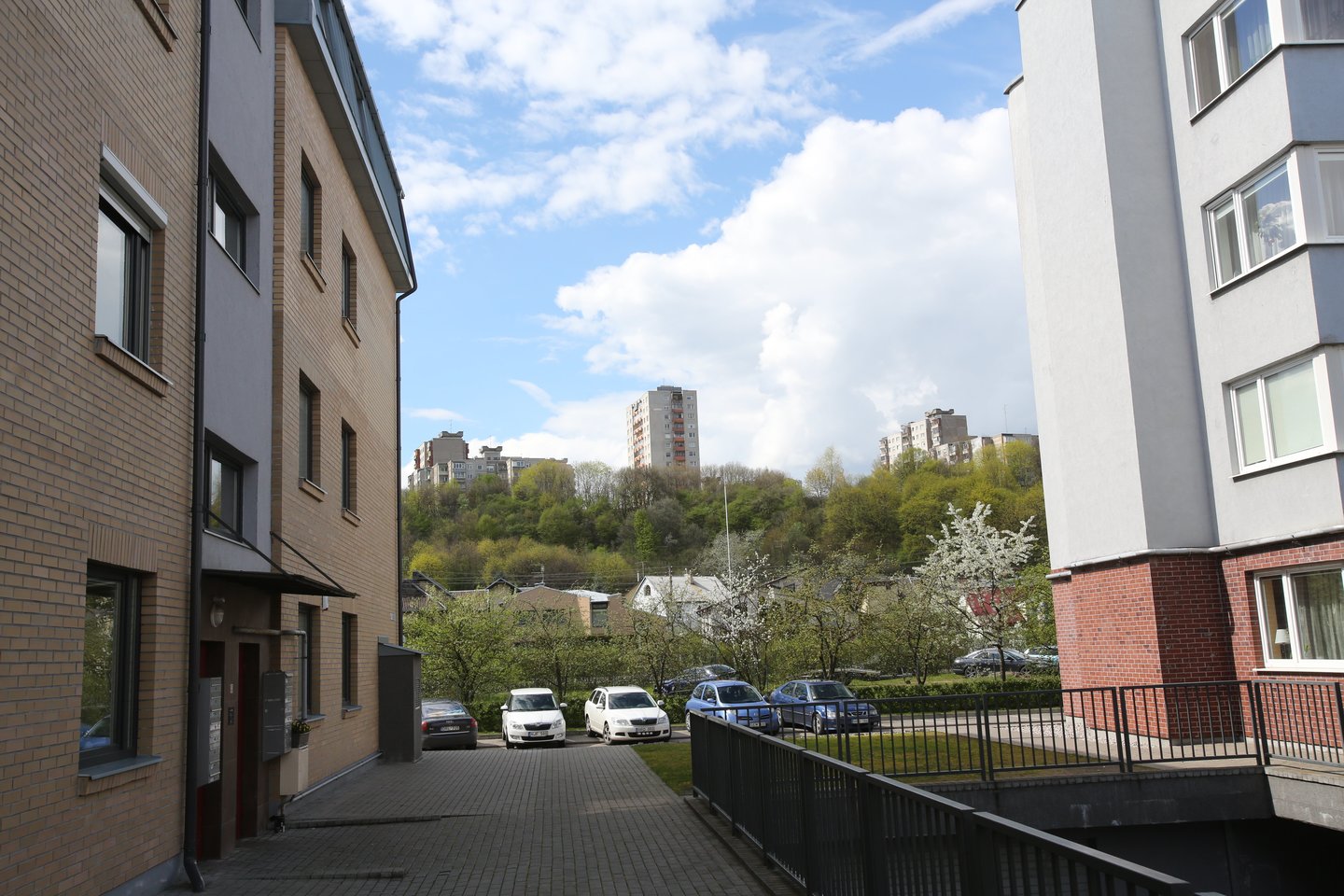The city has seen a double-digit price decline of 12.2% over the year. In terms of price per square metre, Vienna has almost doubled the price of its nearest competitor, the Swedish capital Stockholm. Here, a drop of 6.4% was recorded.
Compared to a year ago, Dublin (Ireland) saw a drop of 2.4%, Paris (France) 2.3% and Berlin (Germany) 1%.
Madrid (Spain), Milan (Italy) and Zurich (Switzerland), on the other hand, recorded increases of 5.6%, 3.8% and 3.5% respectively.
Well-developed public housing
„Tomas Sovijus Kvainickas, Head of Investment and Analysis at Inreal Group, has an explanation of what's working. According to him, each region has specific characteristics that have led to either an increase or a decrease in house prices.
Vienna is unique in that it has a well-developed social housing programme, with around 60% of the city's 1.8 million inhabitants living in public housing.
„When more than half of the population can choose to live in such housing, it provides a very strong counterweight to private housing. If it becomes very expensive, the alternative is to move to well-developed public housing. In Lithuania, a social housing programme exists, but it meets the needs of a very small proportion of the population. It is not even comparable to Vienna,“ T.S.Kvainickas told lrytas.lt.
According to Bloomberg, in the Austrian capital, where there is an active rental market, the fall in prices has been exacerbated by stricter mortgage rules, which in May brought sales prices down to an average of EUR 7,084 per square metre. Prices in Vienna are expected to continue falling.
According to the real estate agency Real Immobilienvermittlung GmbH, with rising interest rates and inflation reducing disposable incomes, more and more families in Vienna are renting rather than buying apartments.
Housing used to be unaffordable in very expensive cities such as Stockholm, Paris and Zurich. „Where prices are already high, it's hard for them to go even higher. When a property is difficult to afford, prices have to come down at least a little if you want to sell,“ said T.S.Kvainickas.
Fixed interest rates are almost non-existent
The type of loan also has an impact on prices. The Bank of Lithuania notes that Lithuania is one of the few euro area countries where the fixed-rate mortgage product is almost non-existent, while the interest rate on new loans, when fixed for more than a year, is, on average, one of the highest in the euro area.
„A representative of the Inreal Group explained what this means: „When you buy a property with a fixed interest rate for 25–30 years, you are assured of having the same payment for the entire life of the loan. Imagine a situation where one person buys a house now and another one did it 5 years ago. 5 years ago, the interest rate was 1%, and EURIBOR was 0%. Now, when buying a home, the long-term interest rate is 6%. The person who bought the home before will not want to sell it because they will not get the same favourable loan conditions.
When interest rates are variable, it is not so easy to decide what to do with the property. Today, we are talking about the possibility of the EURIBOR falling next year. A buyer taking out a loan with a variable interest rate, which in Lithuania is fixed for up to 12 months, will pay a margin of 2.5% to 3% this year, around 5% interest, and will have at least 1% less a year later.
Meanwhile, a buyer who buys with a 30-year loan will have the same in a year's time. Therefore, the incentive to buy at high-interest rates is lower.
No pressure to cut prices
Rising wages have also contributed to stable house prices, at least partly offsetting inflation. Such wage growth has not been recorded everywhere. Since house prices are linked to affordability, the price of a property should fall as it becomes unaffordable. Conversely, as wages rise, there is less pressure to cut prices.
Nerijus Mačiulis, Chief Economist at Swedbank, also talks about the impact of salaries on property prices.
According to him, the main reason why house prices in Lithuania are not decreasing is that the labour market is still very favourable for the population: the unemployment rate is low, and the average wage is increasing quite fast. In the first quarter of this year, it was almost 15% higher than a year ago.
Another important factor, according to Mr Mačiulis, is the structural shortage of housing, where there has not been enough housing built for quite a long time. This has prevented the creation of a large surplus, which developers would offer discounts to sell.
„At the same time, we have seen a fairly rapid increase in the city's population. In Vilnius, for example, the number of inhabitants has been increasing by 7–8 thousand every year since the middle of the last decade. Last year, after the arrival of refugees from Ukraine, the population grew in all cities. Housing was scarce, and rents were high. So naturally, this gave stability to house prices,“ the economist commented.
He also pointed out another aspect: in Lithuania, the consumer confidence index, which measures people's expectations of future economic trends and personal finances, has risen above the long-term historical average and is almost at record highs. This means that people are not feeling very worried. Therefore, those who were planning to buy a house have not changed their plans.
A greater cooling-off is evident among second and third-home buyers.
„Rental yields have fallen significantly: in Vilnius, they are 4–5%, in Kaunas and Klaipėda, a little more, but these yields are close to mortgage rates. This is not attractive for investment, especially since there is a chance that we will see lower prices in the coming years,“ he predicted.
The changed requirements are also at work
According to the head of investment and analysis at Inreal Group, house prices also reflect a number of changes that have been implemented in the primary market over the last couple of years.
The first is the higher energy class requirements for new building permits. The second is the infrastructure charge, which is particularly felt in the economy segment. T.S.Kvainickas also mentioned the compensation for development on public land.
„Property developers have had to increase prices just to achieve some profitability,“ he concluded.
It does not mean that prices will not rise
However, according to T.S.Kvainickas, this does not mean that prices in Lithuania will not rise.
„Here is an example of how responsible lending regulations work.
In countries where responsible lending regulations are lighter or do not exist at all if the EURIBOR is 0%, one can borrow a much higher amount than in Lithuania, where the lending is subject to a 5% interest rate probability.
When interest rates start to rise, those who could have borrowed at 0% can borrow EUR 75 000 instead of, say, EUR 150 000 as they approach 5% interest. Whereas in Lithuania, just as you could have borrowed EUR 75 000, you can get the same amount.
If EURIBOR rises to such an extent that the interest rate on loans rises significantly above 5%, the amount a person can borrow will be affected. Secondly, if interest rates stay high for a longer period of time and changes in the economy lead to a reduction in the number of workers, there will be no reason to talk about a rise in house prices.

